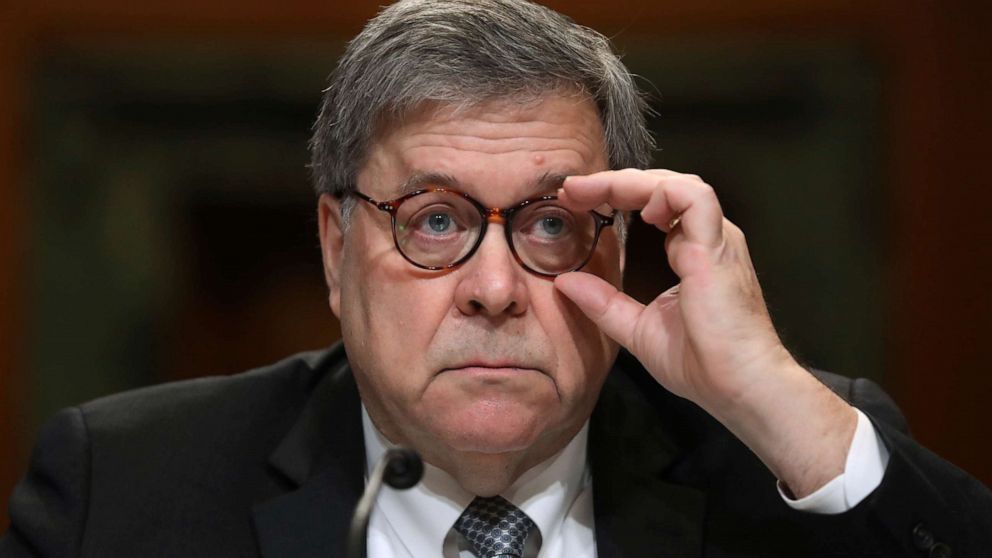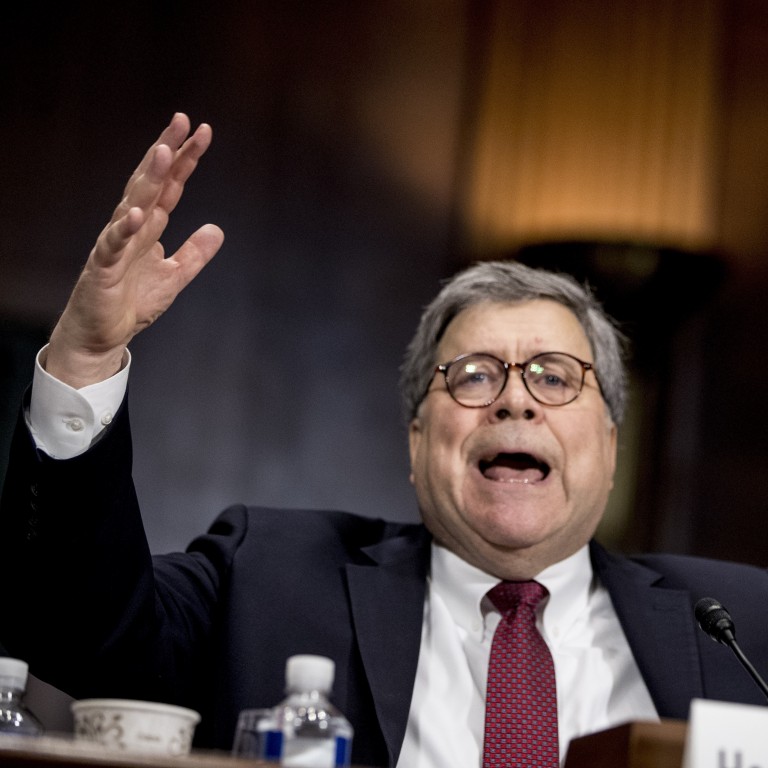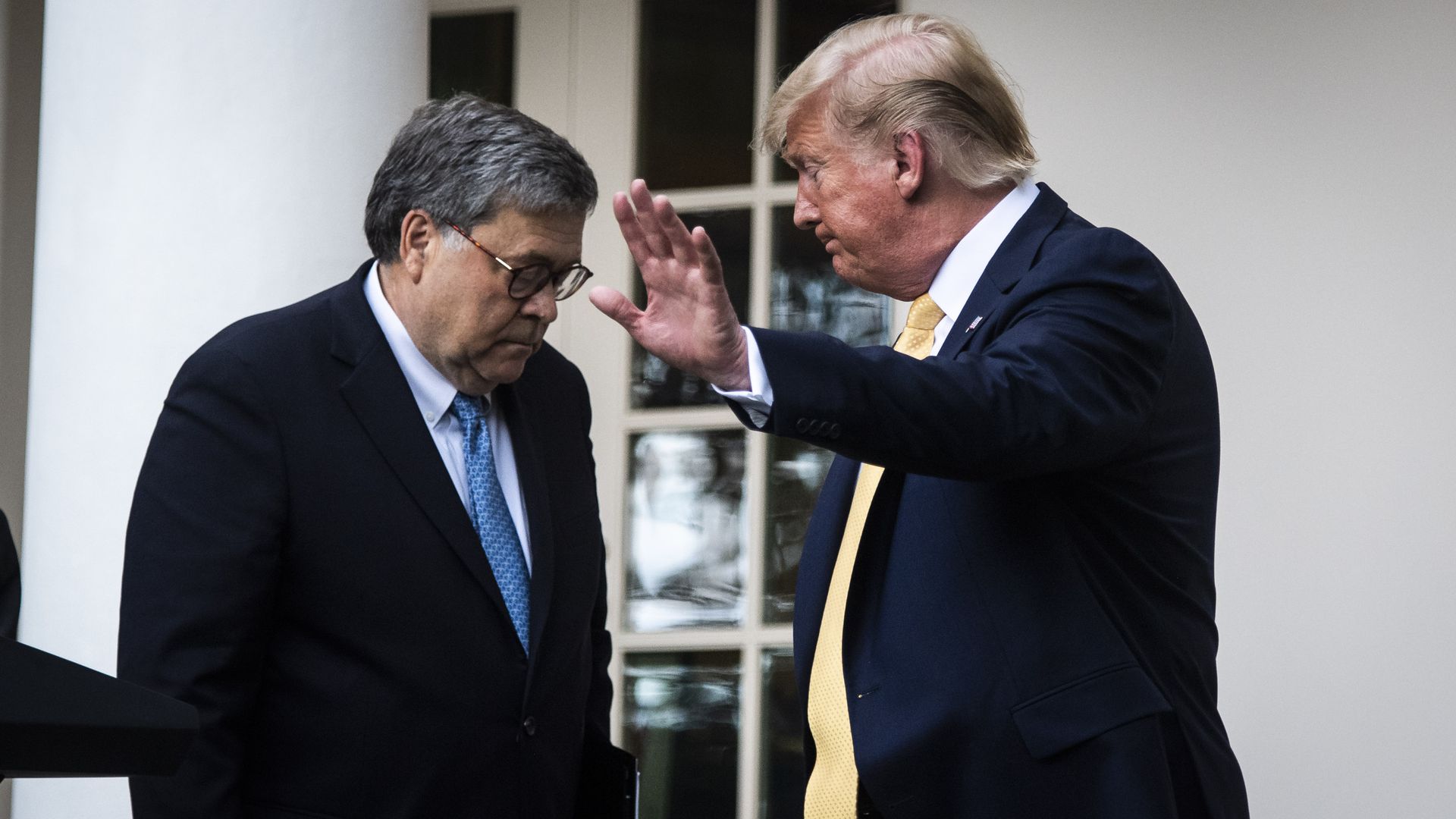Who is William Barr?

A few minutes every morning is all you need.
Stay up to date on the world's Headlines and Human Stories. It's fun, it's factual, it's fluff-free.
On March 31, 2020, US Attorney General William Barr is set to testify before the House Judiciary Committee regarding, among other things, his role in reducing the sentence of Roger Stone.
Stone is said to be an ally of President Donald Trump, and many believe the Justice Department’s intervention in his sentencing was a result of Trump pressuring Barr, who oversees the department.
Barr has had a long career in law enforcement, stretching back to his days with the Central Intelligence Agency. He was previously attorney general under President George H.W. Bush.
Barr as attorney general
On February 14, 2019, Barr was sworn in as attorney general for the second time in his career, replacing former Attorney General Jeff Sessions. As attorney general, Barr is in charge of the Department of Justice (DOJ) and serves as the chief legal counsel for the US government.
Under former President George H.W. Bush, Barr served as the Assistant Attorney General for the Office of Legal Counsel, before becoming the deputy attorney general, and ultimately the attorney general.
His experience prior to serving in the Bush administration included working for the CIA while attending law school at Columbia University. The New York-born attorney was with the agency from 1971 to 1977, which includes the period in which George H.W. Bush was CIA Director.
Barr left government service during the administration of President Bill Clinton for private law and corporate employment. That included being the Executive Vice President of Verizon Communications from 2000 to 2008.
As attorney general under Trump, much of Barr’s public responsibilities have involved overseeing legal investigations into the president and his allies. That has led to the current situation in which the DOJ stepped in to reduce the sentence that had been suggested for Roger Stone by its own lawyers. Many have cited Barr’s seemingly strong loyalty to Trump.
The responsibility of the attorney general

Beyond overseeing federal legal cases, the attorney general is responsible for reviewing domestic legal issues at all levels. For Barr, that has included investigating mass shootings. The attorney general also has authority over local police departments.
Under former President Barack Obama, the Justice Department, led by then-Attorney General Eric Holder, investigated the police department of Ferguson, Missouri. That followed the shooting death of Michael Brown, an 18-year-old black man, by Darren Wilson, a white police officer.
The investigation uncovered a systemic pattern of racial bias in the police department, for which Holder said “wholesale and structural corrective action" was necessary.
William Barr in his own words
On April 5, 2001, Barr gave a far-reaching interview with the Miller Center, a nonpartisan affiliate of the University of Virginia focused on presidential scholarship. The interview covered his time in the administration of Bush Sr., spanning a range of topics and Barr’s related political beliefs. Much of the interview focused on the role the DOJ played in issues both domestic and foreign.
Asked if he believed the DOJ should “play a more and more active role internationally,” Barr affirmed that trend, citing concerns about terrorism and the drug war. “A lot of the legal problems,” Barr said, “in the federal government’s lap are multinational problems.” That required creating a “legal framework” for taking the drug war overseas.
Barr spoke of the weakened power of the DOJ under President Bill Clinton, noting that “the role of the Department was strengthened under both Reagan and Bush [Sr.].” In his time in the DOJ, he felt “the utmost deference to the Department as the enforcer of the laws and the developer of policy. I thought that was good.”
Barr supported using the military to fight the drug war, arguing it was essentially fighting terrorism. The government could “use law enforcement to some extent,” he believed, but it wouldn’t be sufficient for winning the war.
Barr also argued that the court system was not the best way to address terrorism in general. In cases of terrorism, he believed achieving the legal requirement of “beyond a reasonable doubt” was too stringent a standard.
He credited Bush Sr. for ending America’s “Vietnam syndrome”: the view that the country should not be using its military power overseas. The successful first Gulf War in Iraq, Barr stated, “Restored a little bit of pride and a little bit of notion that America is a superpower, and we can use our military and use it well and achieve good objectives.”
Barr’s words in the Trump era

While Trump has boasted about his administration’s success in appointing so many conservative judges, in the Miller Center interview, Barr expressed his desire for “good, law and order-type judges,” but suggested “We don’t need perfection,” when it comes to appointing judges who are stridently anti-abortion, an important issue among conservatives.
However, Barr agreed with Trump on the need for getting as many judges appointed as possible and further suggested party loyalty was vital. He noted how President George W. Bush was hurt by Republicans that weren’t fully supportive of him.
That sentiment aligns with Trump, who has notably demanded loyalty from people in his administration, including the former head of the Federal Bureau of Investigation, James Comey, who Trump later fired.
Barr also discussed how Clinton had made Americans realize that “there are certain attributes that they really do want in a President.” He said those attributes – being “a man of honor, and a man of character, and a man they were actually proud to have as President of the United States” – had been found in Reagan and Bush.
Barr on 9/11
In a December 2003 hearing related to the 9/11 terrorist attacks, Barr spoke positively of the controversial USA PATRIOT Act, which expanded the authority of the US’s law enforcement agencies to address perceived terrorist threats.
Barr also expressed support for the FBI and its need for expanded powers.
“The FBI has never been solely a law enforcement agency. It has always combined two functions, serving as the nation’s criminal investigative arm, as well as its domestic security agency responsible for defending against foreign threats ranging from espionage to terrorism.”
“If there is one lesson we should learn from 9/11,” Barr stated, “it is that domestic intelligence and criminal investigation are inextricably related and should be integrated to the maximum extent possible.”
Barr under Trump
While serving under Trump, Barr has challenged the FBI and its leaders.
That included publicly questioning the conclusions of a report that found the FBI had justification to investigate possible Russian infiltration of the Trump campaign. Trump has claimed that the investigation was simply the Obama administration spying on his campaign.
Barr also came into reported conflict with Special Counsel Robert Mueller, who had been investigating possible collusion between the Trump campaign and Russia. That investigation began under Barr’s predecessor and was, in part, based on the FBI investigation.
After Mueller submitted his 448-page report to Barr on March 22, 2019, Barr crafted a four-page memo summarizing the report. Barr’s summary suggested Mueller’s investigation exonerated Trump. Mueller disagreed with that assessment, writing in a letter to the attorney general that the memo “did not fully capture the context, nature, and substance” of his investigation.
[article_ad]




Comments ()